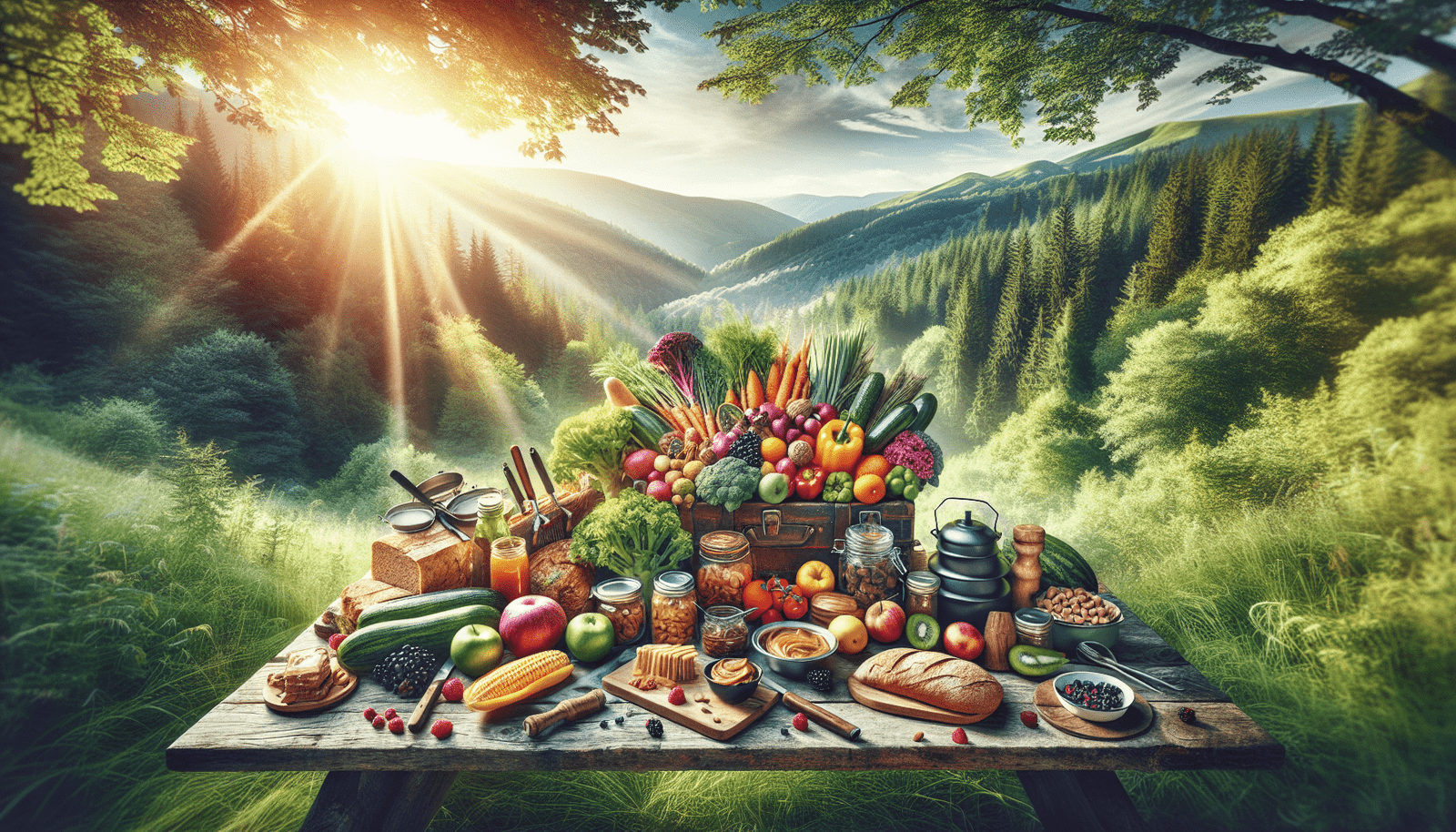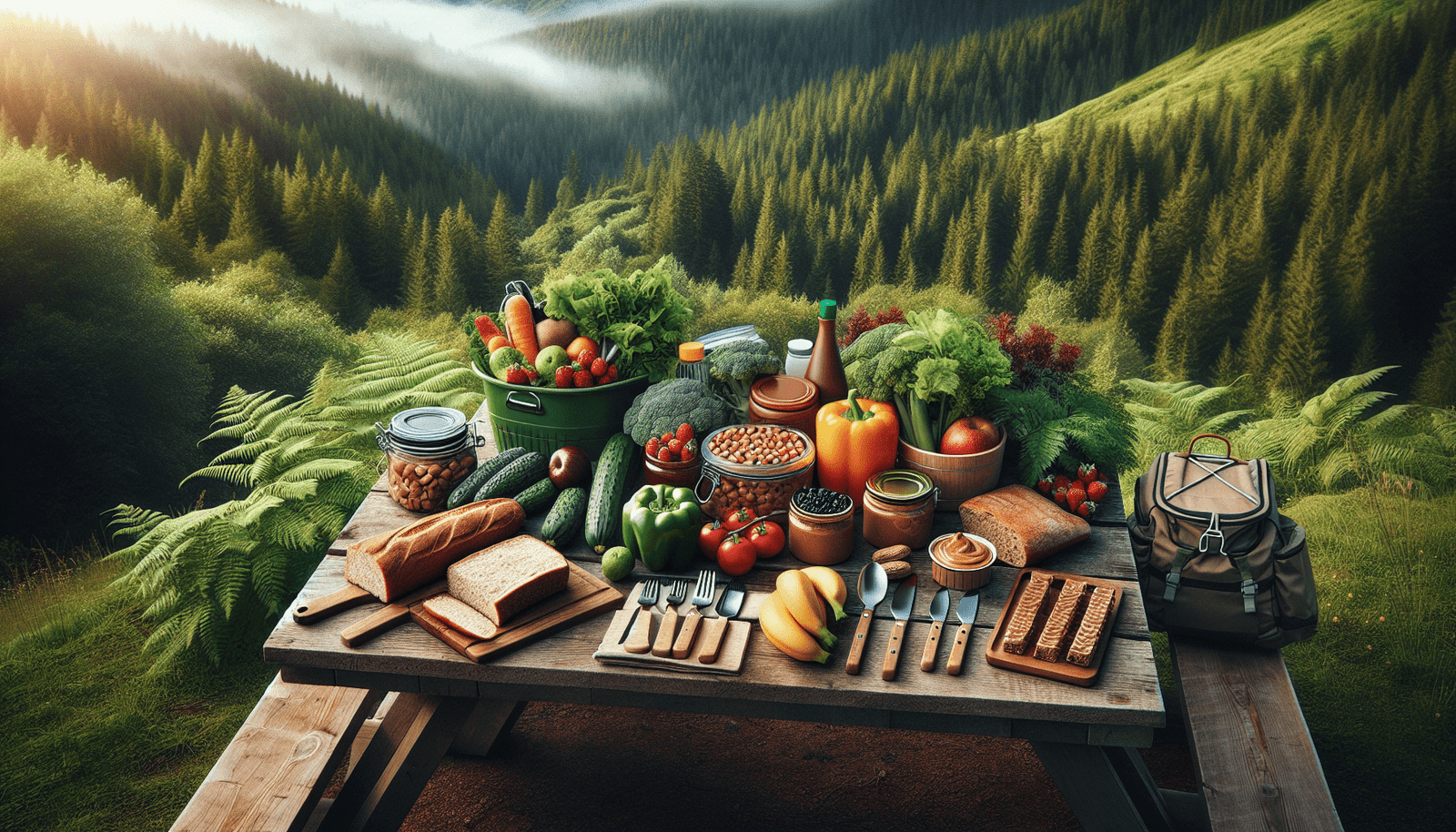Hey there, adventurer! If you’re gearing up for a three-day camping trip and wondering what tasty and practical foods to bring along, you’re in the right place. This guide will walk you through all the essentials, from easy-to-pack snacks to simple yet satisfying meal ideas. You’ll feel prepared and excited to hit the great outdoors, knowing you’ve got the perfect provisions to keep you energized and happy throughout your journey. So, let’s dive into the must-have items for your camping menu, guaranteeing you a deliciously worry-free trip! Have you ever found yourself staring at your camping gear, wondering what food to bring camping for 3 days? It’s a common dilemma for outdoor enthusiasts, and striking a balance between delicious meals and practical packing is key. This guide aims to help you prepare a fun and mouthwatering menu for your next camping adventure.

Why Choosing the Right Food is Essential
Your experience will largely depend on the food you pack. Choosing the right food isn’t just about taste; it’s also about nutrition, convenience, and safety. You want to be fueled with energy, minimizing weight, and avoiding food spoilage.
Factors to Consider When Planning Your Camping Menu
Duration and Environment
Understanding your camping duration (in this case, three days) and the environment you will be in informs your choices. Will you be in a cool, forested area or a sunny beach? Environment affects food storage and preparation.
Meals Per Day
Consider how many meals and snacks you’ll need for each day. Typically, you’re looking at three meals (breakfast, lunch, and dinner) plus snacks.
Cooking Method
Will you have access to a campfire, a portable stove, or are you more inclined towards no-cook meals? The method available to you will influence your menu.
Personal Preferences and Dietary Restrictions
Vegetarians, vegans, or those with allergies need to plan accordingly to ensure they can enjoy their time outdoors without worry.
Essential Items to Bring
No matter your menu, certain essentials should always be included:
| Category | Items |
|---|---|
| Cooking Gear | Portable stove, matches, pot/pan, cutting board, utensils, knives, spatula, tongs |
| Storage | Cooler, ice packs, zip-lock bags, aluminum foil, food containers |
| Cleaning | Biodegradable soap, sponge, trash bags, dishcloth, hand sanitizer |
| Food Basics | Salt, pepper, cooking oil, condiments |
Now that you’ve got your essentials sorted, let’s dive into meal planning.
Day-by-Day Meal Plan
Day 1
Breakfast
Kickstart your adventure with something hearty yet simple so you can focus on setting up camp.
- Scrambled Eggs and Bacon: Pre-crack your eggs into a Mason jar for easy transport. Bacon can be pre-cooked and reheated in a pan or over the fire.
- Campfire Toast: Pack some bread and use a campfire toaster or stick to toast it over the fire.
Lunch
Afternoon meals should be quick and easy, allowing you more time to explore.
- Wraps: Whole wheat wraps with your choice of deli meats, cheese, lettuce, and some dressing.
- Fruit and Nut Mix: A mix of dried fruits, nuts, and a bit of chocolate will give you the energy boost you need.
Dinner
Your first dinner is a great time to enjoy a more substantial meal.
- Grilled Chicken and Vegetables: Marinate chicken breasts before you go and grill over a fire or on a portable stove along with vegetables like bell peppers, zucchini, and onions.
- Instant Rice: Cooks quickly and pairs well with the grilled chicken.
Day 2
Breakfast
You’ll need another solid start for day two’s activities.
- Oatmeal: Pre-packaged oatmeal or rolled oats that you can cook with hot water. Add some dried fruits and nuts for extra nutrition.
- Fruit: Apples or bananas are easy to pack and provide a quick source of energy.
Lunch
Something light yet nutritious works best after a morning of activity.
- Tuna Salad Sandwiches: Use canned tuna mixed with a bit of mayo and relish. Spread it on whole-grain bread.
- Chips and Salsa: A satisfying crunch to go with your sandwich.
Dinner
End your second day with a classic, comforting campfire meal.
- Chili: Pre-make a pot of chili at home (beans, ground meat, tomatoes, spices) and reheat it on your camping stove or over the fire. Serve with a side of cornbread.
Day 3
Breakfast
Keep it simple but filling.
- Pancakes: Mix up some pancake batter at home and store it in a bottle. You can cook them on a stove or iron skillet over the fire.
- Maple Syrup and Butter: Small, easy-to-pack items to make your breakfast feel luxurious.
Lunch
Your last lunch needs to be easy to pack up but still enjoyable.
- Quesadillas: Tortillas with cheese and pre-cooked chicken or beans, heated on a skillet.
- Fresh Veggies: Carrot sticks, celery, and hummus for a healthy side.
Dinner
If you’re packing up camp and heading home, you might prefer a no-cook meal for your final dinner.
- Cold Pasta Salad: Prep it beforehand with pasta, veggies, cheese, and a light vinaigrette.
- Leftover Snacks: Any remaining fruit or snacks should be consumed to avoid waste.

Snacks and Sweets
Between all those meals, you’ll need a good stash of snacks:
- Trail Mix: A timeless classic that is easy to make your own.
- Granola Bars: Nutritious and handy for quick energy.
- Jerky: High in protein and great for long hikes.
- S’mores: Marshmallows, chocolate, and graham crackers for the ultimate campfire treat.
Beverage Ideas
Hydration is crucial, but you’ll also want some tasty beverages along the way:
- Water: Carry ample water or a portable water filter.
- Coffee/Tea: Single-serve instant coffee packets or tea bags.
- Hot Cocoa: Perfect for chilly nights around the campfire.
- Juice/Sports Drinks: Provide hydration and energy.
Food Storage and Safety Tips
Cooler Packing Tips
- Ice Packs: Use multiple smaller packs throughout the cooler for extended cooling.
- Layering: Place meats and dairy at the bottom, vegetables and prepackaged items on top.
- Frozen Bottles: Freeze water bottles to use as ice packs and to have cold water as they melt.
Food Safety Tips
- Expiration Dates: Check all dates and plan to consume perishable items early in your trip.
- Separation: Keep raw meat separate from other foods to avoid cross-contamination.
- Hand Hygiene: Use hand sanitizer or soap and water before handling food.
Quick Tips for Easy Camping Meals
Pre-Cooking and Prepping
- Marinades and Mixes: Prepare marinades and mix sauces at home to save time.
- Chop Ahead: Pre-chop veggies and store them in zip-lock bags.
- Ready-to-Cook: Make individual servings of oatmeal or portion out ingredients.
Simplified Cooking Methods
- Foil Packets: Handy for grilling veggies or fish with minimal cleanup.
- One-Pot Meals: Minimize dishes by cooking everything in one pot (soups, stews).
- No-Cook Options: Include some meals that require no cooking for ease.
Environmentally Friendly Practices
Leave No Trace
Living by the principle of “Leave No Trace” ensures you respect nature:
- Pack Out Trash: Bring back all your waste, including food scraps.
- Reusable Gear: Use reusable cutlery, plates, and containers.
- Biodegradable Soap: Use it for dishwashing and personal hygiene.
Wildlife Safety
Be mindful of local wildlife when storing and handling food:
- Bear-Proof Containers: If in bear country, use approved storage.
- Hang Food: Suspend food from a tree branch if no bear-proof container is available.
Conclusion
Now that you know what food to bring camping for 3 days, you can focus on enjoying your adventure. A little preparation goes a long way in ensuring you have delicious, nutritious, and safe meals while you’re out exploring the great outdoors. Remember, the best part of camping is not just the views or the hikes but also sharing great meals around the campfire with friends and family. Happy camping!
With these tips and meal plans, your 3-day camping trip is set to be both tasty and hassle-free. Enjoy!
